TikTok is once again at risk of being banned in the US.
TikTok's parent company, tech conglomerate ByteDance, has until June 19 to reach a deal to sell the app or shut it down, leaving 170 million TikTok users in the US unable to access it.
The prospect of a TikTok acquisition has attracted interest from a number of potential partners.
A group of investors led by billionaire Frank McCourt Jr. has expressed interest in buying the app, alongside Microsoft, internet personality Mr. Beast, and Oracle co-founder Larry Ellison.
Previously, US President Donald Trump signaled his readiness to extend the TikTok sale deal for a third time.
The app was briefly shut down in January, but Mr Trump pushed back the deadline to April as talks over a sale continued to drag on.
Mr Trump signed a second executive order to extend it, but that order is set to expire this Thursday (June 19 local time).
The US president has the power to extend the deal, but questions remain about how much longer he can continue to push back the deadline before ByteDance is ultimately forced to sell or shut down TikTok.
Mr Trump initially called for a ban on TikTok during his first term but changed his stance ahead of the 2024 election.
Mr. Trump credited TikTok with attracting young voters to his re-election effort and invited the company’s CEO, Shou Zi Chew, to his inauguration along with other tech leaders, including Apple CEO Tim Cook, Google CEO Sundar Pichai and Meta CEO Mark Zuckerberg.
Earlier in 2024, the US Congress passed and former President Joe Biden signed into law requiring parent company ByteDance to divest from TikTok. Otherwise, US cloud service providers and app stores will be forced to stop hosting the service or face heavy fines.
However, the Trump administration has assured cloud service providers and app stores that they will not face fines while the deadline is extended.
TikTok previously tried to fight the ban and took its legal battle to the US Supreme Court. But the court sided with the government 's argument that the app could pose a national security threat.
US officials have argued for years that the Chinese government could use TikTok to spread disinformation or collect information on American users for future use. But the US has not publicly shared evidence of this threat.
Sales of TikTok Shop, the e-commerce arm of video- sharing platform TikTok, have plummeted in the US due to the impact of tariffs and other uncertainties.
After spending heavily over the past two years to get its e-commerce business up and running, TikTok is taking new steps to recoup capital.
Since February, TikTok Shop has laid off employees based on performance, added stricter rules for returning to the office, had two rounds of layoffs, and implemented new measures to control costs.
TikTok has also introduced cost-cutting measures, including new budget limits for travel.
TikTok recently began its latest round of layoffs, targeting employees in its e-commerce division and some employees working with global brands.
In emails to laid-off workers, TikTok said it was reducing complexity “to create a more efficient operating model for the group’s long-term growth.”
TikTok CEO Shou Zi Chew has hinted at a spending cut to improve operating efficiency by February 2025.
The move is similar to that of CEOs at major corporations like Meta, Microsoft and Google, which have recently cut employee benefits, reduced payrolls and changed performance standards in the pursuit of cost savings.
TikTok also plans to stop subsidizing free shipping for sellers on TikTok Shop later this month, following previous discounts.
The move will bring TikTok's free shipping subsidy more in line with competitors like US e-commerce giant Amazon, but could upset some merchant partners.
TikTok recently told employees that it is establishing a stricter approval process for business travel.
TikTok is asking for more information about travel arrangements to better understand the impact on budgets and set spending limits on hotels and airfare.
The leadership of ByteDance, TikTok's parent company, has been disappointed with its US business, which has fallen short of its 2024 targets. US sales on the platform have been hurt in part by US tariffs.
For example, the weekly order volume on TikTok Shop in the US market in mid-May 2025 decreased by about 20% compared to mid-April 2025 after the tariffs took effect./.
(TTTXVN/Vietnam+)
Source: https://www.vietnamplus.vn/tiktok-lai-dung-truoc-nguy-co-bi-cam-cua-tai-my-post1044757.vnp

























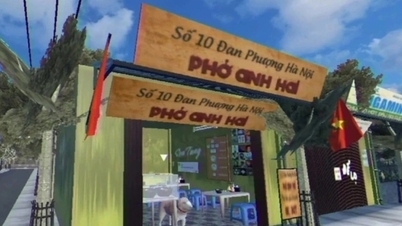






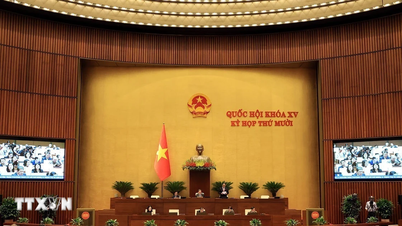
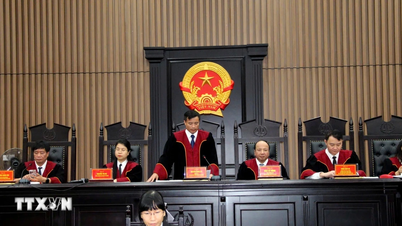
























































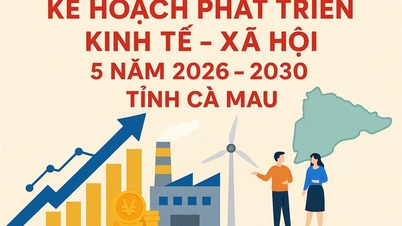



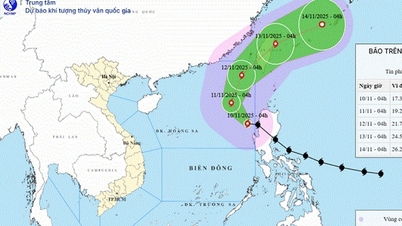



![Dong Nai OCOP transition: [Article 3] Linking tourism with OCOP product consumption](https://vphoto.vietnam.vn/thumb/402x226/vietnam/resource/IMAGE/2025/11/10/1762739199309_1324-2740-7_n-162543_981.jpeg)












Comment (0)